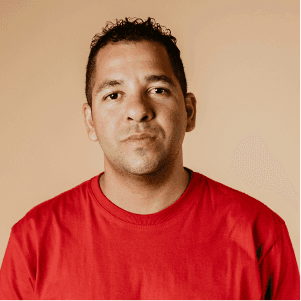How to Ask for Directions in Japanese for Beginners
Picture this: you're strolling through the vibrant streets of Tokyo, excited to explore—but suddenly, you realize you're lost. You glance around, unsure of how to ask for help. Don't worry! Learning a few simple phrases in Japanese can make a huge difference in situations like this.
This guide is designed for beginners who want to learn how to ask for directions in Japanese—with confidence. From essential directional words to full example conversations, you’ll have everything you need to navigate Japan with ease.
Cardinal Directions in Japanese
Before you dive into full sentences, it’s useful to know some essential Japanese words and phrases for getting directions. These foundational terms can help you navigate stations, streets, and public spaces more confidently. Knowing how to say "left" (hidari), "right" (migi), or "straight ahead" (massugu) will go a long way in helping you ask for and understand directions. Whether you're asking locals for the nearest train station or figuring out how to reach your hotel, mastering these basics can make your travel experience much smoother.
English | Japanese | Romaji |
|---|---|---|
North | 北 | kita |
South | 南 | minami |
East | 東 | higashi |
West | 西 | nishi |
Front | 前 | mae |
Back | 後ろ | ushiro |
Left | 左 | hidari |
Right | 右 | migi |
Inside | 中 | naka |
Outside | 外 | soto |
Giving Directions in Japanese
Giving directions in Japanese often involves simple verbs and location phrases that are easy to pick up with a bit of practice. Common verbs like iku (to go), magaru (to turn), and wataru (to cross) are frequently paired with directional terms such as migi (right), hidari (left), and massugu (straight ahead). Understanding these essential Japanese words and phrases for giving directions can help you communicate clearly and assist others when navigating local streets or transit systems.
まっすぐ行ってください (massugu itte kudasai) – Please go straight
左に曲がってください (hidari ni magatte kudasai) – Turn left
右に曲がってください (migi ni magatte kudasai) – Turn right
交差点を渡ってください (kousaten wo watatte kudasai) – Cross the intersection
How to Ask for Directions in Japanese?
When you’re exploring Japan, getting a little lost is part of the adventure—but knowing how to ask for directions in Japanese can make things a lot less stressful. Even if your Japanese skills are basic, just a few polite and clear phrases can go a long way. Locals usually appreciate the effort and are often happy to help. Here are five essential phrases that will help you confidently ask for directions in Japan:
~はどこですか? (~ wa doko desu ka?) – Where is ~?
新宿駅はどこですか? (Shinjuku-eki wa doko desu ka?) – Where is Shinjuku Station?
~に行かなくてはいけないのですが (~ ni ikanakute wa ikenai no desu ga) – I need to get to ~
銀行に行かなくてはいけないのですが… (Ginkou ni ikanakute wa ikenai no desu ga…) – I need to get to the bank...
~にはどうやって行きますか?(~ ni wa dou yatte ikimasu ka?) – How do I get to ~?
横浜にはどうやって行きますか? (Yokohama ni wa dou yatte ikimasu ka?) – How do I get to Yokohama?
この近くに~がありますか?(kono chikaku ni ~ ga arimasu ka?) – Is there a ~ nearby?
この近くにコンビニがありますか? (Kono chikaku ni konbini ga arimasu ka?) – Is there a convenience store nearby?
すみません、~がどこか知っていますか?(Sumimasen, ~ ga doko ka shitte imasu ka?) – Excuse me, do you know where ~ is?
すみません、このホテルがどこか知っていますか? (Sumimasen, kono hoteru ga doko ka shitte imasu ka?) – Excuse me, do you know where this hotel is?
Different Navigation Words
To understand and follow directions in Japanese, it helps to know common navigation-related words. These terms often pop up when locals explain routes or when you’re reading signs and maps. Learning them will give you a solid foundation for navigating cities, train stations, and streets with ease.
English | Japanese | Romaji |
|---|---|---|
Here | ここ | koko |
There | そこ | soko |
Over there | あそこ | asoko |
Around here | この辺 | kono hen |
Close | 近い | chikai |
Far | 遠い | tooi |
Transportation Words
Getting around in Japan is easier when you’re familiar with some common transportation-related vocabulary. Whether you’re hopping on a train, bus, or taxi, knowing these essential Japanese transportation words can help you navigate stations, read signs, and understand announcements more confidently during your travels.
English | Japanese | Romaji |
|---|---|---|
Station | 駅 | eki |
Bus stop | バス停 | basutei |
Train | 電車 | densha |
Subway | 地下鉄 | chikatetsu |
Bullet train | 新幹線 | shinkansen |
Taxi | タクシー | takushii |
Direction Verbs
Direction verbs are essential when you want to understand or give instructions about movement or location in Japanese. These verbs help you describe actions like turning, going straight, or crossing a street. Knowing them will make it easier to follow directions or explain your route.
English | Japanese | Romaji |
|---|---|---|
Go | 行く | iku |
Come | 来る | kuru |
Turn | 曲がる | magaru |
Cross | 渡る | wataru |
Exit | 出る | deru |
Enter | 入る | hairu |
Location Words
To effectively ask for directions in Japanese, it's essential to understand key location words. These words will help you navigate the city, whether you’re trying to find a specific building, street, or landmark. Knowing basic location words will make your conversations smoother and help you communicate clearly. Here are some important terms to get you started:
English | Japanese | Romaji |
|---|---|---|
Hotel | ホテル | hoteru |
Airport | 空港 | kuukou |
Convenience Store | コンビニ | konbini |
Police Box | 交番 | koubann |
Police Station | 警察署 | keisatsusho |
Hospital | 病院 | byouin |
Park | 公園 | kouen |
Bus stop | バス停 | basutei |
Bank | 銀行 | ginkou |
Temple | お寺 | otera |
Cafe | カフェ | kafe |
Building Words
In Japanese, there are specific terms for common items and areas within a building. These can range from furniture to rooms and appliances. Knowing these essential words will help you navigate everyday conversations, whether you're in a home, office, or public space in Japan. Let’s look at some basic vocabulary to get started.
English | Japanese | Romaji |
|---|---|---|
Elevator | エレベーター | erebeetaa |
Escalator | エスカレーター | esukareetaa |
Stairs | 階段 | kaidan |
Room | 部屋 | heya |
Bathroom | トイレ/お手洗い | toire/otearai |
Front Desk | 受付/フロント | uketsuke/furonto |
Restaurant | レストラン | resutoran |
Example Conversation – Asking for Directions in Japanese
To help you put what you’ve learned into practice, here’s an example conversation that shows how you can ask for directions in Japanese. This will give you a better idea of how the phrases flow in a real-world situation. By following the example, you'll see how to politely approach someone, ask your question, and understand the response, making your trip through Japan much easier and more enjoyable.
You:
すみません、新宿駅はどこですか?
(Sumimasen, Shinjuku-eki wa doko desu ka?)
Excuse me, where is Shinjuku Station?
Local:
まっすぐ行って、二つ目の信号を右に曲がってください。駅は左側にあります。
(Massugu itte, futatsume no shingou wo migi ni magatte kudasai. Eki wa hidari gawa ni arimasu.)
Go straight, turn right at the second traffic light. The station is on your left.
You:
ありがとうございます!
(Arigatou gozaimasu!)
Thank you very much!
(P.S. If you like to learn more essential Japanese phrases for travel, check out our guide here.)
FAQs
How do I ask where a place is in Japanese?
To ask where a place is, you can use the phrase 「場所はどこですか?」 (Basho wa doko desu ka?), which means "Where is the place?" If you're asking about a specific place like a station, you would say 「駅はどこですか?」 (Eki wa doko desu ka?), meaning "Where is the station?"
Can I get by with English in Japan?
In major cities, yes. Outside of tourist areas however, basic Japanese will be extremely helpful.
How do I ask for a specific location like a restaurant in Japanese?
If you want to ask for a specific place like a restaurant, you can say 「レストランはどこですか?」 (Resutoran wa doko desu ka?), meaning "Where is the restaurant?" or 「すし屋はどこですか?」 (Sushiya wa doko desu ka?), meaning "Where is the sushi shop?"
How do I ask if something is far or near in Japanese?
To ask if something is far, you can say 「それは遠いですか?」 (Sore wa tooi desu ka?), meaning "Is it far?" To ask if something is near, say 「それは近いですか?」 (Sore wa chikai desu ka?), meaning "Is it near?"
What's the best way to practice these phrases?
Use apps like Sakuraspeak to simulate real conversations and build your confidence before your trip.
Conclusion
Getting lost in Japan doesn’t have to be stressful. With a few easy phrases and basic vocabulary, you’ll be navigating like a local in no time. Plus, showing the effort to speak Japanese goes a long way in building rapport with locals.
Ready to practice? Download Sakuraspeak to role-play travel scenarios and improve your conversational Japanese fast. Safe travels and happy exploring!






